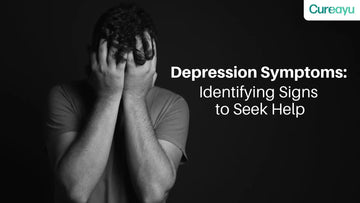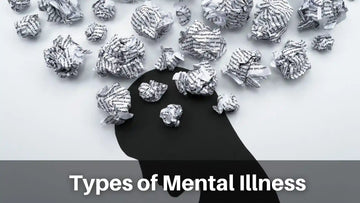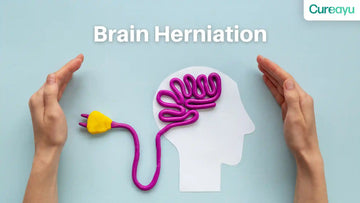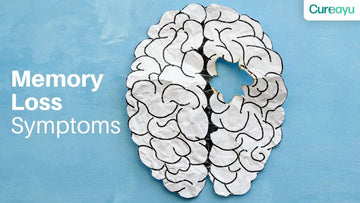Depression is a multifaceted condition that affects millions of people worldwide regardless of age, race, or socioeconomic status. Recognizing the symptoms of depression is critical for early diagnosis, management, and effective treatment. Despite its prevalence, depression remains a misunderstood condition, often dismissed as mere sadness or a temporary mood swing.
In reality, depression can severely impact one's quality of life, leading to impaired daily functioning, strained relationships, and even loss of employment. Understanding its symptoms and manifestations is the first step towards addressing and mitigating its effects. This blog aims to provide a comprehensive overview of depression by exploring its definition, various types, symptoms, causes, treatment options, and preventive measures.
What Is Depression?
Depression, also known as major depressive disorder (MDD), is a medical condition characterized by persistent feelings of sadness, hopelessness, and a lack of interest or pleasure in nearly all activities. It transcends the occasional blues or the sadness that follows a distressing event. While temporary sadness is a common human emotion, depression is a persistent condition that requires medical and psychological intervention.
Clinically, depression is defined as a mood disorder that affects both mental and physical health. The condition can lead to a range of emotional and physical problems, diminish a person’s ability to function at work and home, and affect social relationships. It’s not merely a state of mind; rather, it can manifest in various debilitating forms impacting overall well-being.
Also Read: 15 Best Brain Boosting Foods to Enhance Cognitive Function and Memory
What Are The Types Of Depression?
Major Depressive Disorder (MDD)
Major Depressive Disorder, commonly referred to as clinical depression, involves severe symptoms that affect daily living activities, including sleeping, eating, or working. Episodes of MDD typically last at least two weeks but can continue for months if untreated.
Persistent Depressive Disorder (PDD)
Also known as dysthymia, Persistent Depressive Disorder is a chronic form of depression with less severe but longer-lasting symptoms. Individuals with PDD may experience periods of major depression along with times of less severe symptoms, making everyday functioning challenging.
Bipolar Disorder
Bipolar disorder is characterized by extreme mood swings that include emotional highs (mania or hypomania) and lows (depression). The depressive episodes can mimic symptoms of Major Depressive Disorder, severely impacting a person's ability to function.
Seasonal Affective Disorder (SAD)
Seasonal Affective Disorder is a type of depression that occurs at a specific time of year, usually in the winter months when daylight hours are shorter. Symptoms often resolve during the sunnier days of spring and summer.
Postpartum Depression
This type of depression affects new mothers and typically occurs within the first few weeks to months after childbirth. Unlike the "baby blues," which are common and temporary, postpartum depression is more severe and long-lasting.
Psychotic Depression
Psychotic depression occurs when severe depression is accompanied by some form of psychosis, such as hallucinations or delusions. This type is particularly dangerous as it requires immediate medical intervention.
Also Read: How to Prevent Migraines: Comprehensive Ways to Avoid Migraines
Depression Symptoms
Persistent Sadness and Irritability
Unlike temporary sadness that everyone experiences, persistent sadness is a hallmark sign of depression. This may be accompanied by irritability and mood swings without any apparent reason.
Loss of Interest or Pleasure
Anhedonia, the loss of interest in activities once enjoyed, is another significant symptom. Whether it's hobbies, social interactions, or even simple pleasures like eating, a person with depression may find little to no joy in them.
Changes in Appetite and Weight
Depression can lead to significant changes in appetite and weight. Some people may experience increased appetite and weight gain, while others may lose their appetite and weight as a result.
Sleep Disturbances
Individuals with depression often experience insomnia or excessive sleeping. These sleep disturbances further exacerbate other symptoms of depression, such as fatigue and low energy.
Fatigue and Low Energy
A common symptom of depression is a pervasive sense of tiredness and lack of energy. This fatigue can make even simple tasks feel overwhelming.
Difficulty Concentrating
Depression can impair cognitive functions, making it hard for individuals to concentrate, make decisions, or remember things.
Feelings of Worthlessness or Guilt
Persistent feelings of guilt or worthlessness, often over trivial matters, are common in depressive individuals. These feelings can lead to a negative self-image and self-blame.
Suicidal Thoughts
Perhaps the most alarming symptom of depression is recurrent thoughts of death or suicide. This necessitates immediate intervention and should never be ignored.
Also Read: The Art of Mental Health: Crafting Wellness in Life
Causes Of Depression
Genetics: Family history of depression can increase the risk.
Biochemistry: Abnormal levels of neurotransmitters, such as serotonin, dopamine, and norepinephrine, are linked to depression.
Hormonal Changes: Conditions such as pregnancy, postpartum period, menopause, or thyroid problems can trigger depression.
Trauma and Stress: Life events such as the loss of a loved one, relationship problems, or financial difficulties can contribute to depression.
Medical Conditions: Chronic illnesses like diabetes, heart disease, or cancer can co-occur with depression.
Substance Abuse: Alcohol or drug abuse can trigger or worsen depressive symptoms.
Personality Traits: People with low self-esteem, who are easily overwhelmed by stress, or generally pessimistic are more prone to depression.
Depression Treatment & Management
Medication
Antidepressants, including SSRIs, SNRIs, and MAOIs, are commonly prescribed to correct chemical imbalances in the brain. It's essential to consult a healthcare provider for the appropriate medication.
Psychotherapy
Cognitive-behavioral therapy (CBT) and other forms of psychotherapy can help individuals understand and change negative thought patterns. Therapy is often used in conjunction with medication for better efficacy.
Lifestyle Changes
Regular physical activity, a balanced diet, and adequate sleep can all contribute to emotional well-being and help manage depression symptoms.
Mindfulness and Meditation
Practices like mindfulness and meditation can help manage stress and improve overall mental health. Techniques such as deep breathing and progressive muscle relaxation are also beneficial.
Support Groups
Joining a support group allows individuals to share experiences and coping strategies with others who understand what they are going through. It can provide emotional support and reduce isolation.
Hospitalization
In severe cases, especially when there is a risk of self-harm, hospitalization may be necessary to ensure the safety and stabilization of the patient.
Also Read: A Deep Dive into Depression Signs, Causes, and Treatments
Prevention For Depression
Regular Exercise: Physical activity can improve mood and overall mental health.
Healthy Diet: Consuming a balanced diet rich in nutrients supports overall health.
Adequate Sleep: Proper sleep hygiene can prevent mood disturbances.
Stress Management: Techniques such as yoga, meditation, and deep breathing can reduce stress levels.
Strong Social Support: Maintaining close relationships with friends and family can provide emotional support and reduce feelings of isolation.
Avoid Alcohol and Drugs: Limiting the use of substances that can affect mood helps prevent depression.
Routine Medical Check-ups: Regular visits to a healthcare provider can catch symptoms early on and provide timely intervention.
Conclusion
Depression is a serious condition that requires attention, understanding, and appropriate treatment. Awareness of its symptoms can lead to early diagnosis and effective intervention, ultimately improving the quality of life for those affected. While the journey to managing depression can be challenging, various options—from lifestyle changes to medical treatments—offer pathways to recovery. A proactive approach involving support systems, medical treatment, and self-care practices can empower individuals to lead fulfilling lives, even in the face of depression. By staying informed and vigilant, we can all contribute to a world where mental well-being is prioritized and nurtured.












